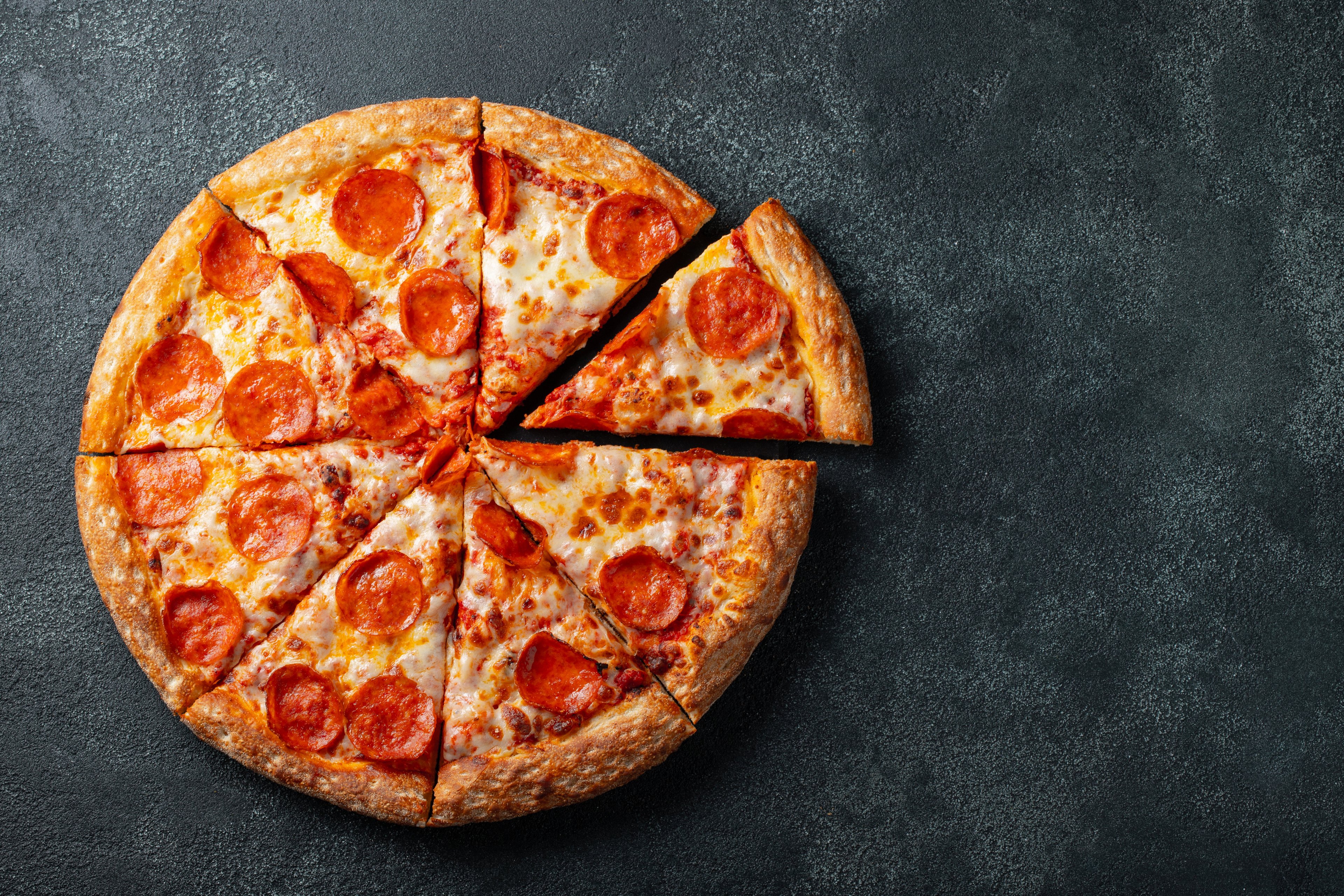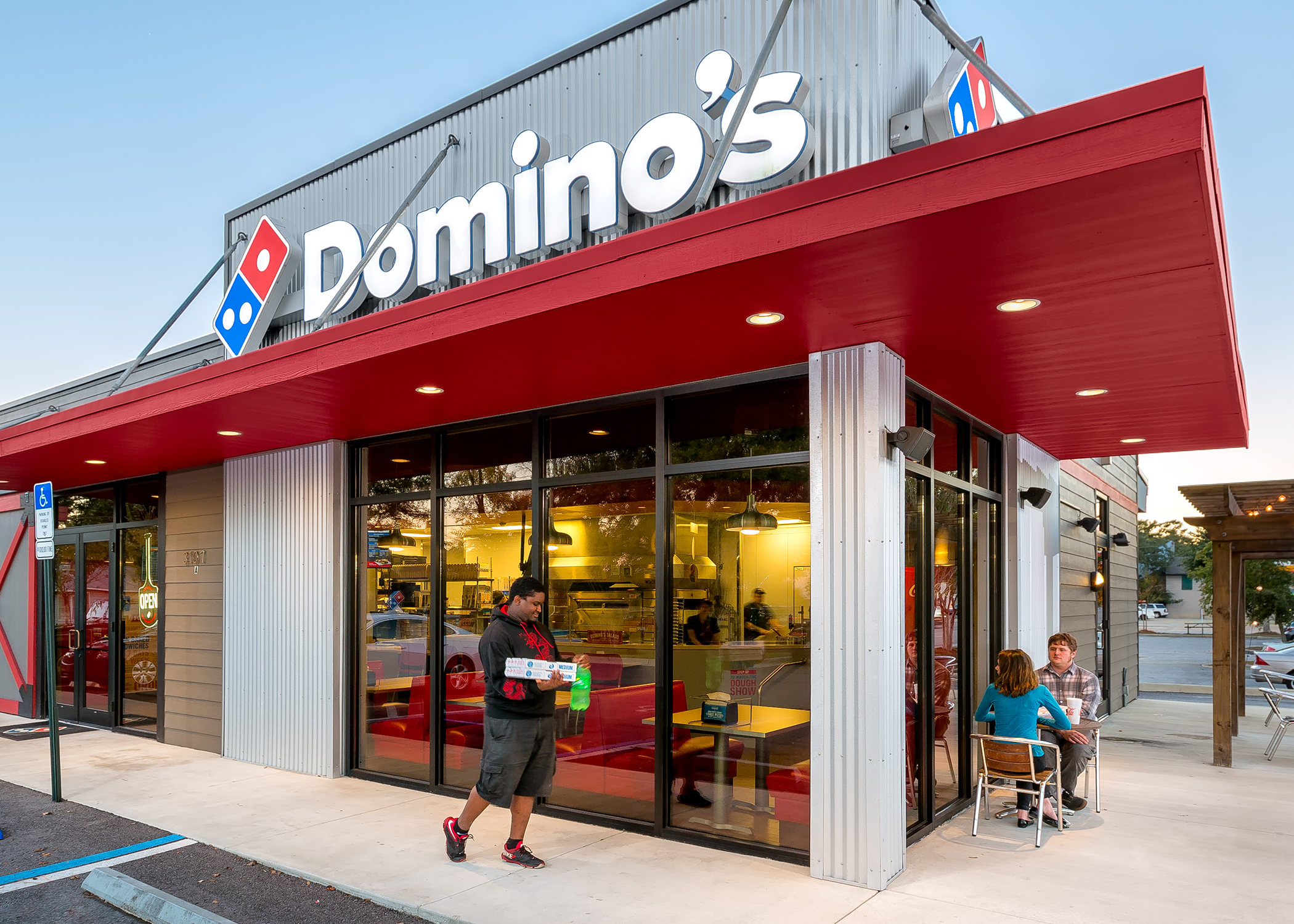Shares of the world's largest pizza chain, Domino's Pizza (DPZ +2.68%), are soaring after its final earnings report for 2019 was released Thursday after the market close. One of the best-performing stocks of the 2010s with a more-than-4,000% return, Domino's is off to a strong start in the 2020s with a 25% surge in stock price in the day after the release.
Returns like this are rare for a big company in the restaurant space, but not totally surprising considering how good the numbers were to close out the year. Domino's is not only weathering the changes taking place in the restaurant industry, but it appears to be taking a leadership role as the way consumers eat out rapidly evolves.
Handily beating the averages
Domino's has had its fair share of skeptics lately. Management has doubled down on what it calls "fortressing," opening up new stores in existing markets to get ovens closer to diners, thereby increasing convenience and ensuring food is delivered hot. Sounds like a great plan, except that it runs the risk of cannibalizing sales from already-open restaurants. In the U.S., for example, the chain has opened up 1,000 stores in the last five years and now totals more than 6,000 domestically.

Image source: Domino's Pizza.
Top brass at the pizza pie giant have accounted for this. The previous three-to-five-year outlook for average annual global retail sales growth was 8% to 12%, and U.S. and international existing store comparable sales growth (or "comps," a blend of traffic and average order size) of 3% to 6%. During the third-quarter 2019 report, that was downgraded to a two-to-three-year outlook of 7% to 10% global retail sales growth, 2% to 5% U.S. comps growth, and 1% to 4% international comps growth.
As I outlined a few months ago, the updated numbers weren't anything to be too worried about. Fortressing has slowed down the pace of comps growth, but total retail sales were 7.6% higher in Q4 compared with the prior year. U.S. store comps came in at 3.4% and international at 1.7%. Not too shabby.
But here's what's especially impressive: During the fourth quarter of 2019, industry researcher Black Box Intelligence reported that average U.S. restaurant comps declined 0.1% from the year prior, driven by a dismal 3.3% decline in foot traffic. There's no such weakness at Domino's. Plus, Black Box Intelligence also reported that average industry sales rebounded strongly in January with a 2.3% comps increase. That bodes especially well for Domino's if it can continue besting the average.
Leading the way with technology
All told, the successful outing during the holidays resulted in a 19% surge in adjusted earnings and led to a 14% increase for the full-year period. The same two-to-three-year sales outlook was reiterated. Pair that with Domino's share repurchase program (it bought back $594 million worth in Q4 alone) and there are plenty more bottom-line increases likely ahead.
Still, not everyone likes the aggressive new store openings, and I'll admit it's worth monitoring over the next couple of years. However, Domino's growing real estate footprint feeds into its tech strategy as it deals with what CEO Richard Allison called "an unprecedented acceleration of competitive activity across restaurant delivery" that started a couple of years ago. Apps like DoorDash and Uber Technologies' Uber Eats are enabling even small mom-and-pop establishments to be able to deliver food to diners wherever they want. These services aren't perfect, though, and long wait times and cold food are some of the more frequent complaints.
Domino's thinks it can stave off the competition with its decades-long experience in delivery and tech know-how. The company reported 25 million loyalty members on its digital ordering system at the end of Q4, and a total of 85 million customers in its database. Seventy percent of sales in the U.S. were digitally based, and the company continues to invest in its back-office infrastructure to help its teams get pizzas prepared and delivered faster. It recently rolled out a new GPS system for its network of drivers, and investment into autonomous delivery also continues as Domino's prepares for the long-term disruption driving automation is likely to have on the world.
In short, Domino's is executing on its strategy and profitably growing in spite of the risks involved with opening so many new stores. Trading for 38.8 times 2019 adjusted earnings per share, the stock certainly isn't cheap, but it's still worthy of a look for restaurant investors.






